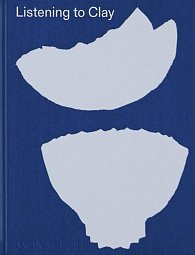The first book to tell the stories of the most revered living Japanese ceramists of the century in their own words, tracing the evolution of modern and contemporary craft and art in Japan, and the artists' considerable influence, which far transcends national borders.
This groundbreaking volume is the first to present conversations with the most important living Japanese ceramic artists of the last century, figures whose unparalleled skill and creative brilliance have lent them an influence that far transcends national borders. Despite forging illustrious careers and earning international recognition, these sixteen artists have customarily been subsumed by their work. Ranging in age from sixty-two to ninety-two, they embody the diverse experiences of several generations who have been active and successful from the late 1940s to the present day, a period of massive change. Now, sharing their stories for the first time, they not only describe their unique processes, inspirations, and relationships with clay, but together trace a seismic cultural shift through a field in which centuries-old but highly exclusionary potting traditions opened to new practitioners and kinds of practices; significantly, the book includes both conversations with artists born into pottery-making families, and the first women admitted to the Tokyo University of the Arts. In the process, Listening to Clay tells a larger story about ingenuity and trailblazing that has shaped contemporary art in Japan and around the world.
Louise Allison Cort is Curator Emerita of Ceramics, National Museum of Asian Art, Smithsonian Institution. Her research interests are historical and contemporary ceramics in Japan, Southeast Asia, and South Asia. Her publications include Shigaraki, Potters' Valley (1979, reprinted in 2000), Isamu Noguchi and Modern Japanese Ceramics: A Close Embrace of the Earth (with Bert Winther-Tamaki, 2003), and Chigusa and the Art of Tea (with Andrew Watsky, 2014). In 2012, she received the Secretary's Distinguished Scholar Award, Smithsonian Institution, and the Koyama Fujio Memorial Price for research on historical and contemporary Japanese ceramics.




 Když teď objednám,
Když teď objednám, 

































